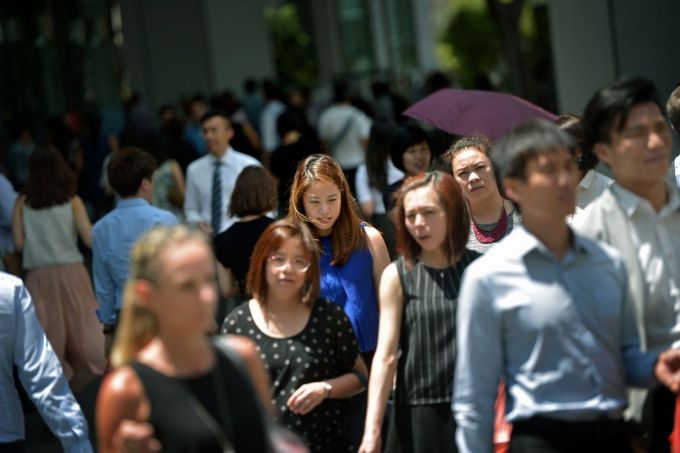Singapore: Productivity gains seen in economy’s uptick, but momentum uncertain
THE Singapore economy has picked up speed on the back of an uptick in global trade, but a sustained improvement in productivity growth could still remain elusive.
Last year’s trade-driven recovery would have led to a short-run increase in labour productivity, but this rise was probably concentrated only in certain sectors, economists say. Data in the coming months – and years – could paint a clearer picture of whether Singapore’s restructuring efforts are finally bearing fruit.
These comments come on the back of data released on Tuesday, showing that the economy expanded 3.1 per cent in the last three months of 2017.
This was higher than economists’ expectations of 2.6 per cent growth, but lower than the preceding quarter’s 5.4 per cent expansion.
The economy grew 3.5 per cent for the whole of 2017, more than double initial forecasts, Prime Minister Lee Hsien Loong said in his New Year message on Sunday.
“We have benefited from the global economic upswing. But more fundamentally, our productivity has grown. Singaporeans are upgrading and learning new skills, while businesses are innovating and adopting new technology,” he added.
Labour productivity numbers for 2017 are due out next month, alongside finalised data on Singapore’s fourth-quarter economic performance.
Manpower Minister Lim Swee Say has previously said that labour productivity grew about 3 per cent for the whole of 2017, accounting for all, or almost all, the economic growth for the year. This would be the highest productivity growth rate since 2010.
However, economists said this pace is probably not sustainable beyond the current global economic recovery.
For one, the pick-up in productivity growth has been concentrated in manufacturing, a standout performer in 2017, thanks largely to surging global demand for semiconductors and related gear, said Maybank Kim Eng economist Chua Hak Bin.
Output in the sector, which makes up a fifth of the economy, expanded 6.2 per cent year-on-year in the fourth quarter, the Ministry of Trade and Industry (MTI) said on Tuesday in its advance estimates.
Dr Chua noted: “Productivity tends to pick up in an upswing – there is some slack so companies can increase capacity without needing to hire. Once that capacity tightens, it becomes much tougher (to produce the same gains.
“It is far too early to conclude that restructuring efforts have delivered productivity improvements.”
DBS senior economist Irvin Seah agreed that a better-than-expected showing in a given year “doesn’t mean we have achieved our goals” of becoming more efficient.
“We are, after all, an externally driven economy. Regardless of how productive we are, the global business cycle has a strong impact on growth performance.”
Working to raise productivity remains vital, he noted, “but we should look at it from the context of a longer-term need to reinvent and ensure sustainable growth, rather than focusing on the performance in a specific year”.
OCBC economist Selena Ling said a sustained pick-up in economic growth as well as in the job market would be clearer signs of strengthening long-term prospects.
The labour market remained soft last year despite strengthening growth, she noted.
“We are hoping that there will be clearer improvements this year, but the pick-up could remain sector-specific.
“Now that growth in the services sector is gaining pace, the question is whether it will translate into more opportunities and more wage growth for workers,” she said.
Government forecasters tip economic growth of between 1.5 and 3.5 per cent for the year ahead. Economists say activity is likely to moderate this year as the electronics manufacturing cycle tapers off.
But services, which makes up two-thirds of the economy and hires the bulk of workers, could contribute more to growth in 2018.
The sector expanded 3 per cent in the fourth quarter of last year, moderating slightly from the 3.2 per cent growth in the preceding three months.
“Services will likely maintain its growth momentum, while construction will stage a recovery on the back of a strengthening property market and the bringing forward of some public infrastructure projects,” said Dr Chua.
He expects the economy to expand 2.8 per cent this year and 2.5 per cent in 2019. But “tight foreign labour restrictions will become more of a constraint on growth this year particularly for services, and some targeted relaxation may be necessary to sustain growth”, he added.
Source: http://www.businesstimes.com.sg/government-economy/productivity-gains-seen-in-economys-uptick-but-momentum-uncertain


 English
English




